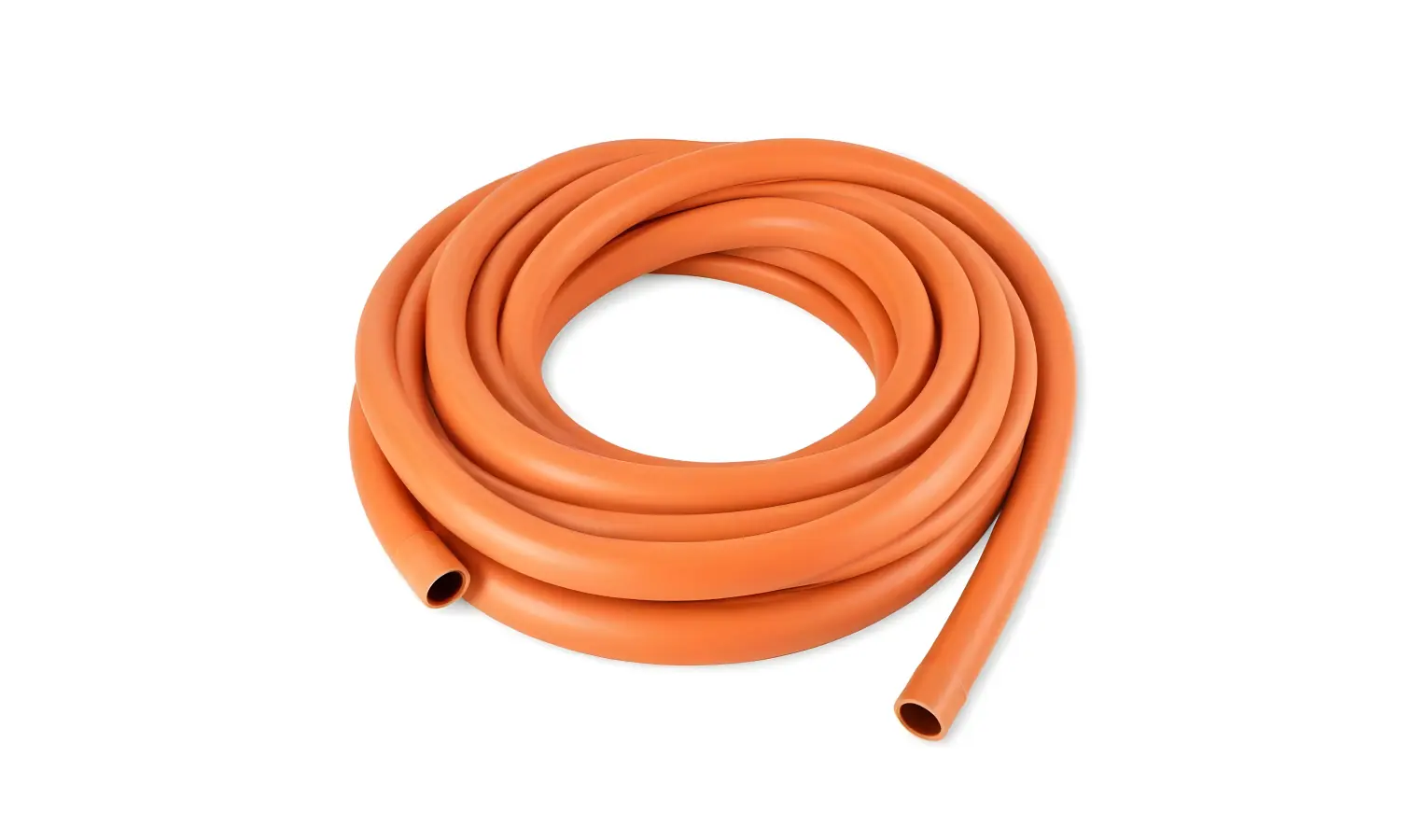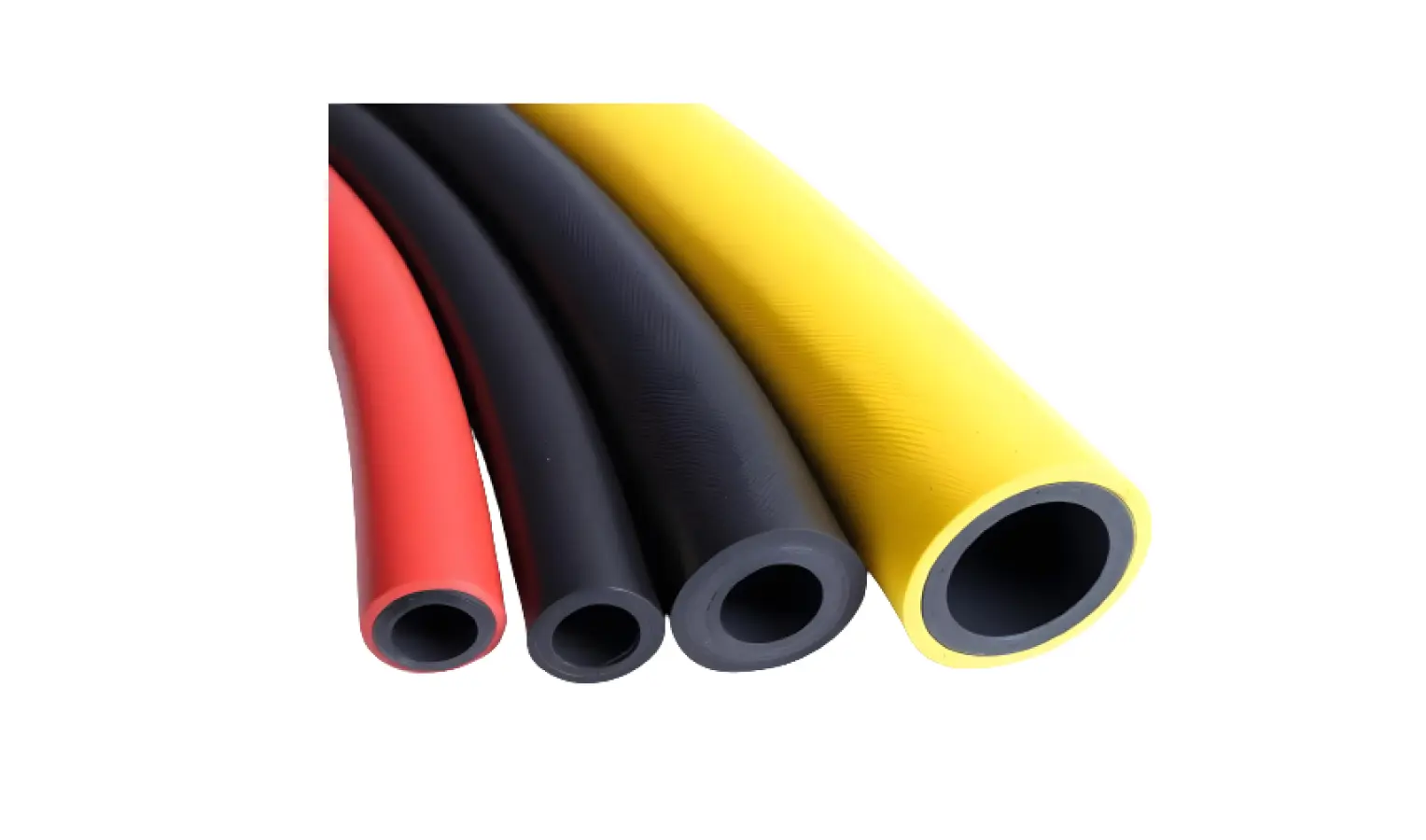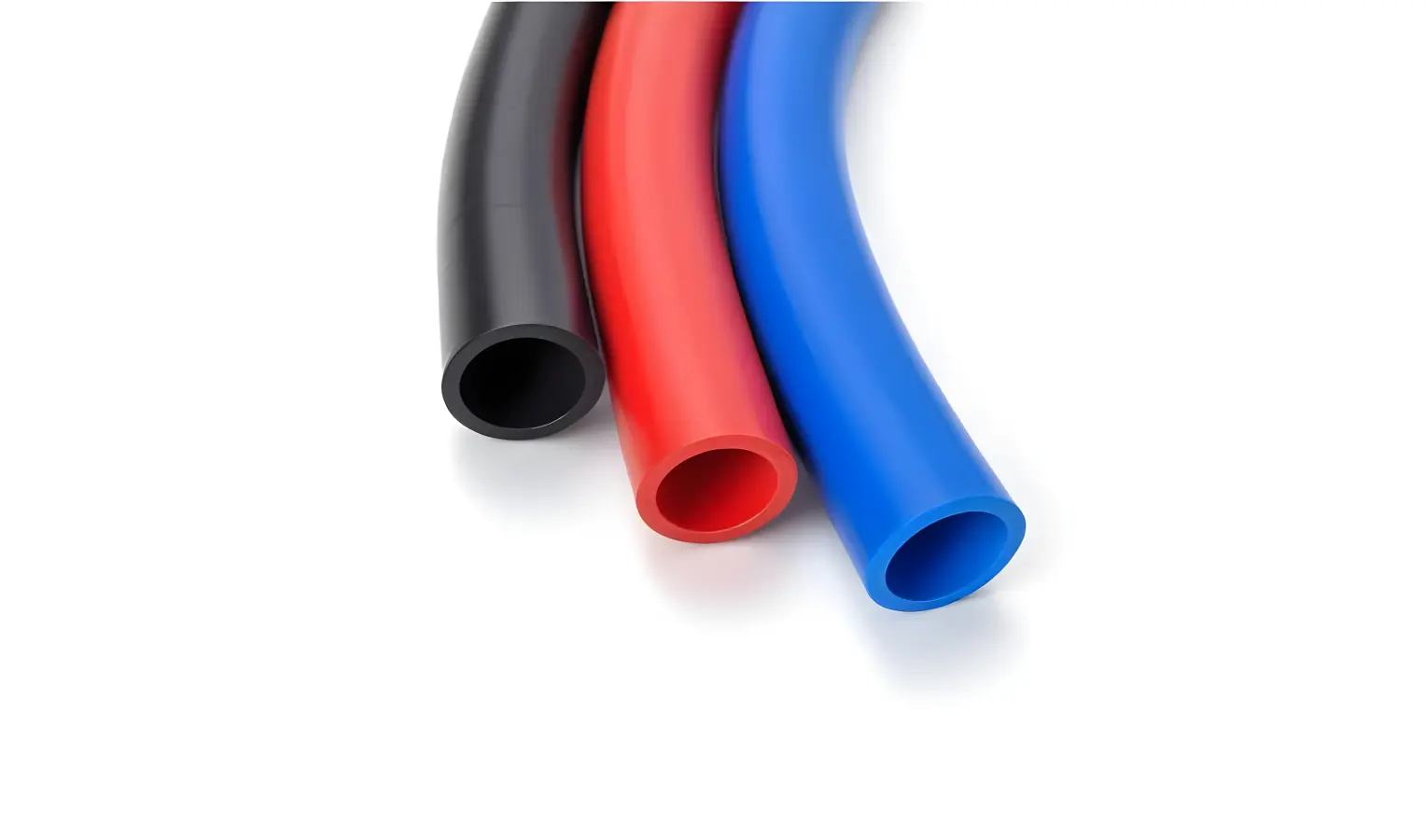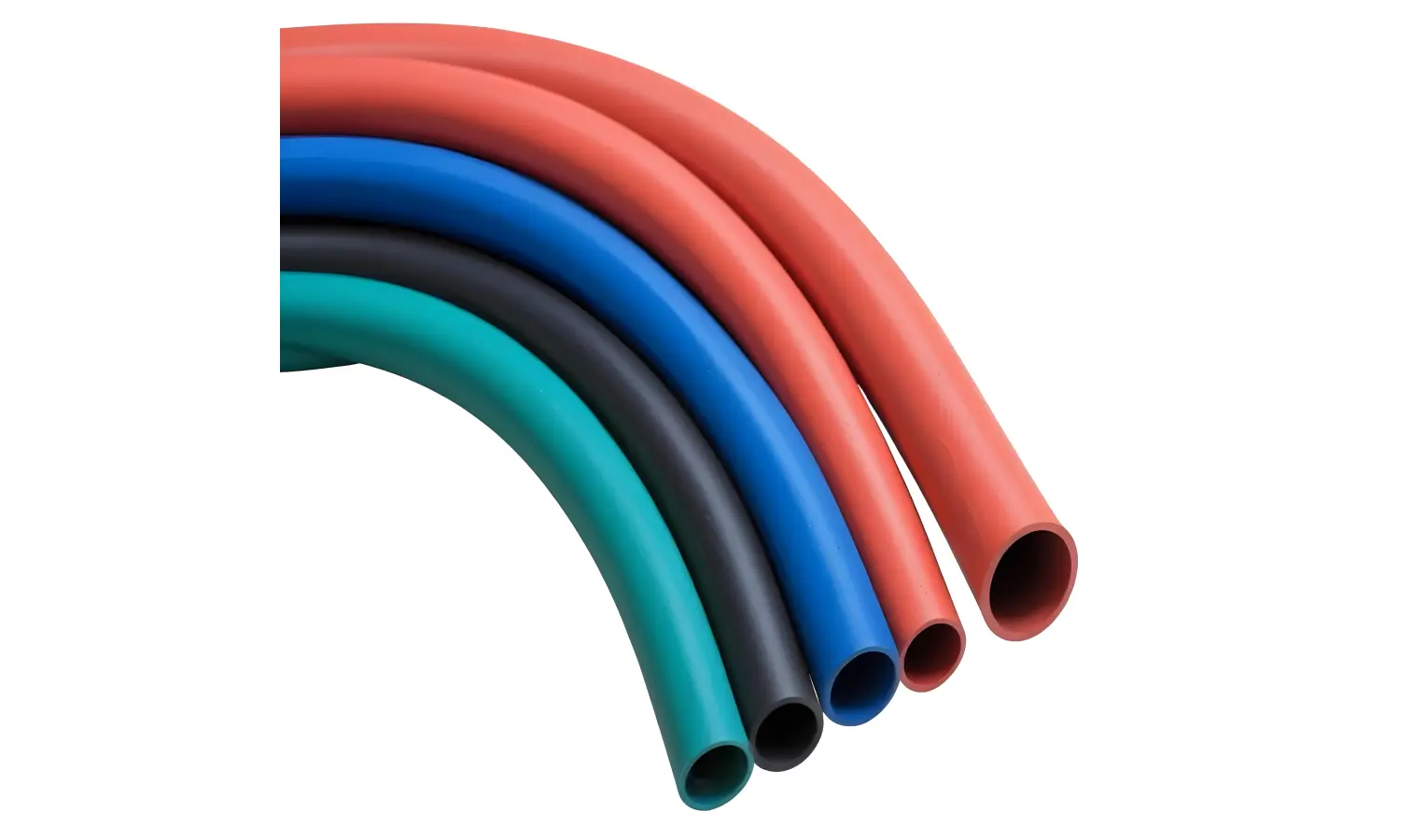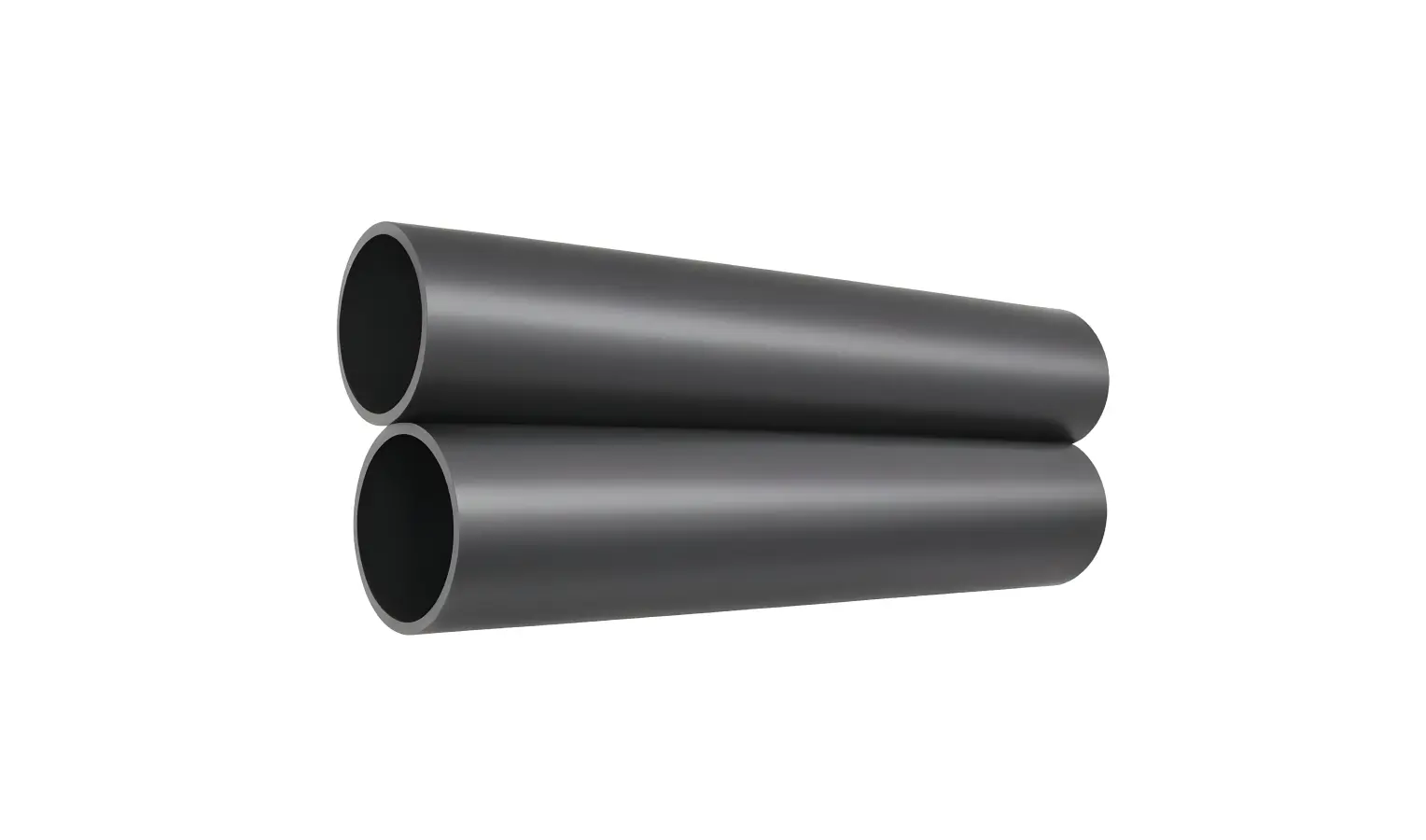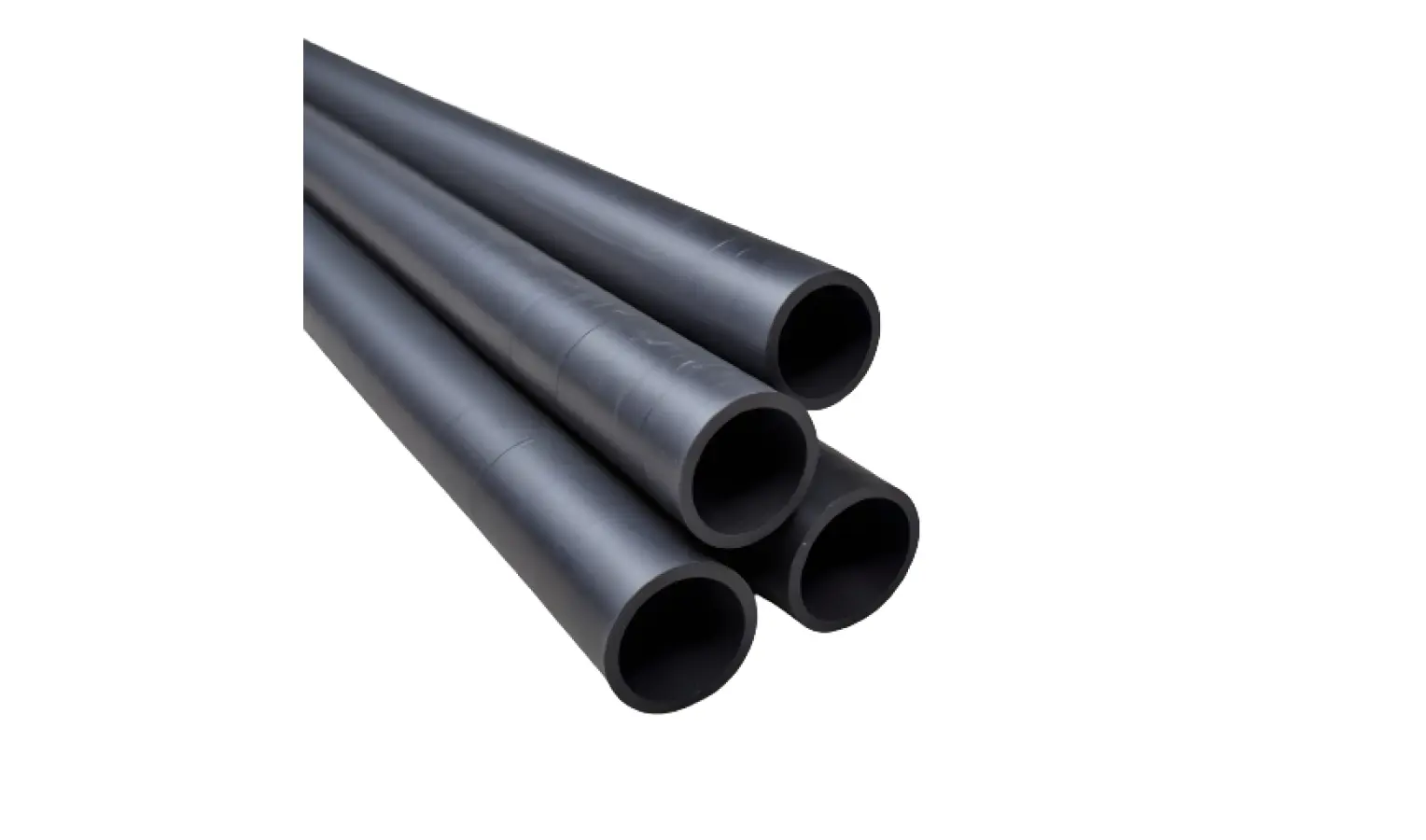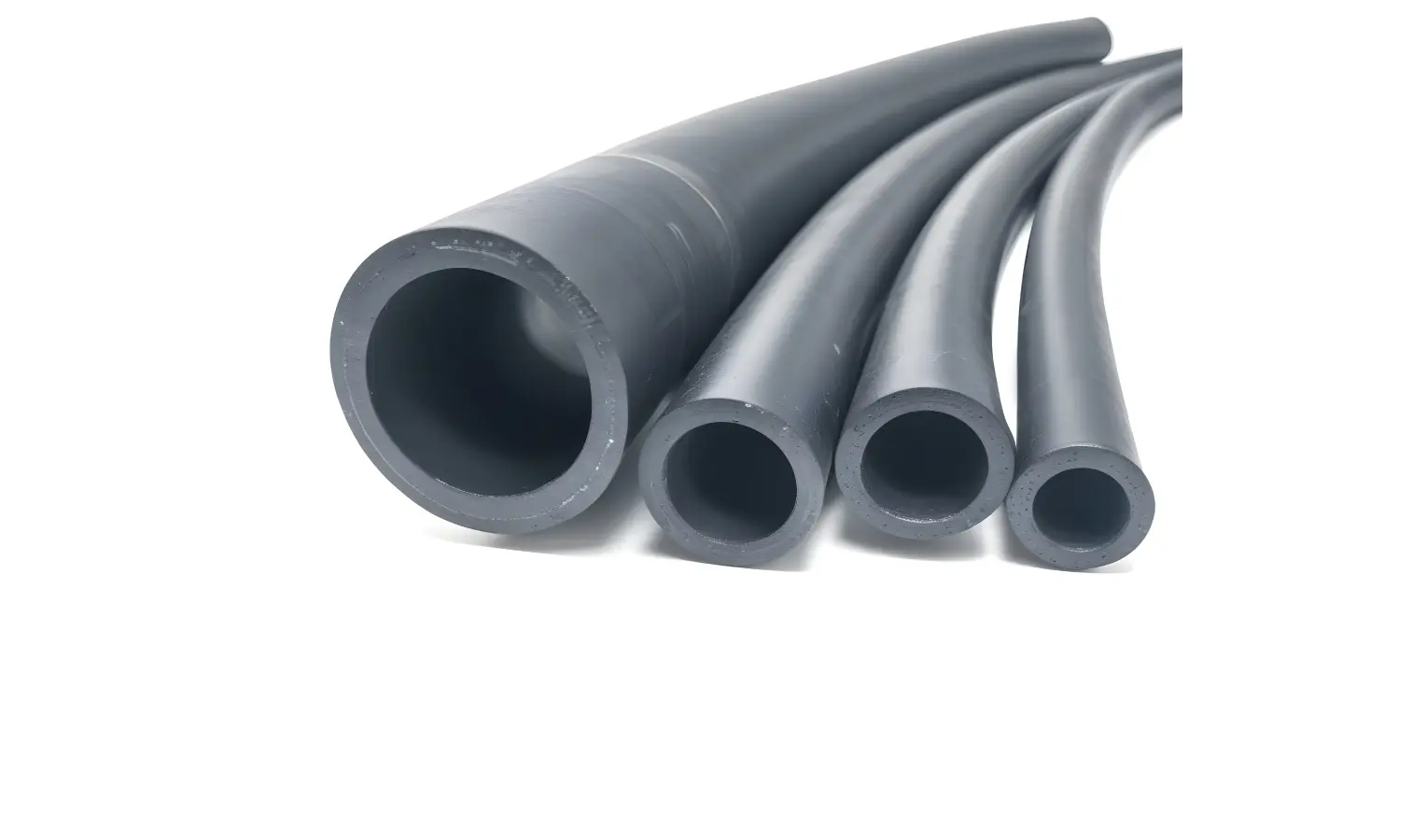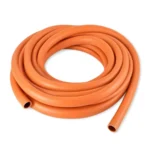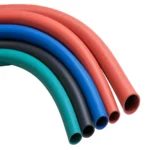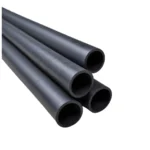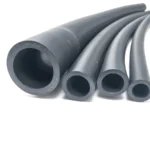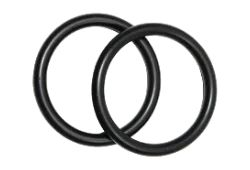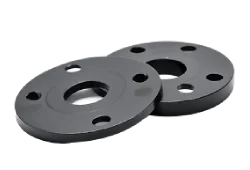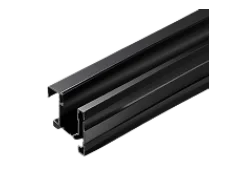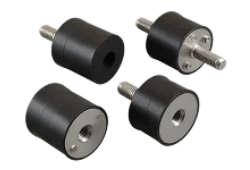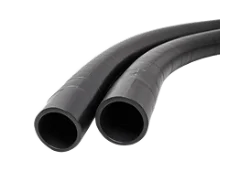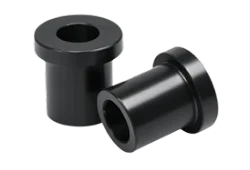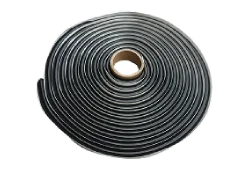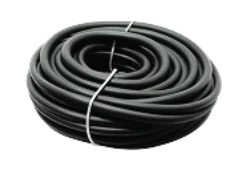Rubber Pipes: High-Performance Fluid Transfer Solutions for Industrial & Commercial Applications
Rubber pipes deliver unmatched durability and flexibility for demanding industrial, automotive, plumbing, and agricultural applications. Engineered to withstand extreme temperatures, high pressure, and corrosive chemicals, our rubber hoses ensure reliable fluid and gas transfer across harsh environments. Choose from food-grade, UV-resistant, and specialty formulations designed for your specific operational needs.
Get bulk pricing on premium rubber pipes from Rubber Xperts Inc.—built to perform, priced to scale.
10% discount for bulk orders over $1,000
Buy High-Performance Rubber Pipes in Bulk from a Reliable Supplier,
Rubber Xperts Inc
Browse our comprehensive selection of rubber pipes and hoses below. Choose by application, temperature tolerance, pressure rating, and material composition.
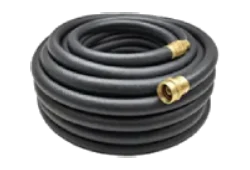
EPDM Rubber Pipes
Weather and ozone-resistant piping for outdoor and steam applications. Exceptional UV stability and thermal resistance for long-term reliability.
- Applications: Hot water systems, steam lines, outdoor irrigation
- Temperature Range: -40°C to +120°C
- Pressure Rating: Up to 150 PSI
- Key Features: UV/ozone resistant, weather-proof, low-temp flexibility
- Certifications: NSF 61 drinking water approved
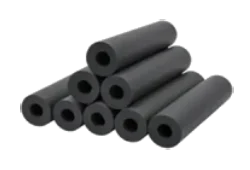
Nitrile (NBR/Buna-N) Rubber Pipes
Oil and fuel-resistant hoses engineered for petroleum-based fluid transfer. Superior abrasion resistance for demanding industrial environments.
- Applications: Fuel lines, hydraulic systems, oil transfer
- Temperature Range: -30°C to +100°C
- Pressure Rating: Up to 250 PSI
- Key Features: Oil/fuel resistant, abrasion-proof, cost-effective
- Certifications: SAE J30 R6/R7 automotive standards
Silicone Rubber Pipes
High-purity silicone tubing for food processing, pharmaceutical, and extreme temperature applications. Maintains flexibility from deep freeze to high heat.
- Applications: Food/beverage transfer, medical devices, high-temp processes
- Temperature Range: -60°C to +200°C
- Pressure Rating: Up to 100 PSI
- Key Features: FDA-compliant, tasteless/odorless, platinum-cured options
- Certifications: FDA 21 CFR 177.2600, USP Class VI
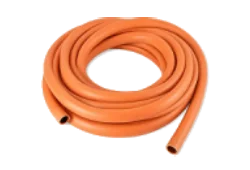
Natural Rubber Pipes
Economical, high-elasticity hoses for general-purpose water and air applications. Excellent physical properties and wear resistance.
- Applications: Water transfer, air lines, low-pressure systems
- Temperature Range: -20°C to +80°C
- Pressure Rating: Up to 80 PSI
- Key Features: Superior flexibility, tear-resistant, and budget-friendly
- Best for: Non-chemical, ambient temperature applications
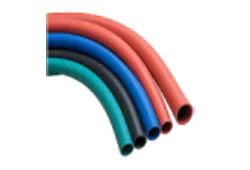
Reinforced Rubber Hoses
Heavy-duty hoses with textile or wire reinforcement for high-pressure industrial systems. Engineered to prevent collapse and bursting.
- Applications: Hydraulics, air compressors, industrial machinery
- Temperature Range: -40°C to +100°C
- Pressure Rating: Up to 3,000 PSI (wire-reinforced)
- Reinforcement Types: Braided textile, spiral wire, aramid fiber
- Standards: EN 854, SAE 100R series
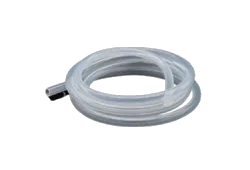
Food-Grade Rubber Pipes
Sanitary-design tubing certified for direct food and beverage contact. Non-toxic, non-tainting materials that meet strict hygiene standards.
- Applications: Dairy processing, brewing, beverage dispensing, food manufacturing
- Temperature Range: -20°C to +100°C
- Pressure Rating: Up to 150 PSI
- Key Features: Smooth bore design, easy to clean, bacterial resistance
- Certifications: FDA, 3A Sanitary, EU 1935/2004
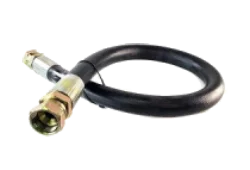
High-Pressure Rubber Pipes
Industrial-strength hoses designed for hydraulic power transmission and extreme pressure applications. Multi-layer construction ensures safety and durability.
- Applications: Hydraulic equipment, pressure washers, industrial cleaning
- Temperature Range: -40°C to +100°C
- Pressure Rating: Up to 6,000 PSI
- Construction: Multi-ply with steel wire reinforcement
- Safety Factor: 4:1 burst-to-working pressure ratio
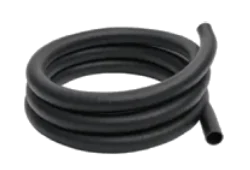
Neoprene Rubber Pipes
General-purpose hoses with balanced chemical, oil, and weather resistance. Versatile solution for diverse industrial applications.
- Applications: Chemical transfer, water lines, general industrial use
- Temperature Range: -40°C to +90°C
- Pressure Rating: Up to 200 PSI
- Key Features: Moderate chemical resistance, flame-resistant grades available
- Ideal For: Multi-purpose industrial facilities
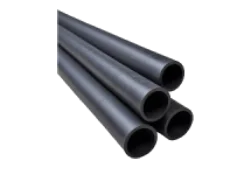
Air Rubber Hoses / Tubing
Lightweight pneumatic hoses optimized for compressed air delivery. Flexible construction reduces fatigue and improves maneuverability.
- Applications: Pneumatic tools, air compressors, automation equipment
- Temperature Range: -30°C to +80°C
- Pressure Rating: Up to 300 PSI
- Key Features: Lightweight, kink-resistant, oil-mist resistant
- Colors: Available in multiple colors for line identification
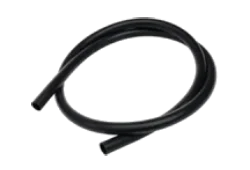
Fluoroelastomer (FKM) Rubber Pipes
Premium chemical-resistant hoses for aggressive solvents, acids, and high-temperature hydrocarbons. Maximum durability in harsh environments.
- Applications: Chemical processing, fuel systems, high-temp fluids
- Temperature Range: -20°C to +200°C
- Pressure Rating: Up to 150 PSI
- Key Features: Exceptional chemical resistance, permeation-resistant, long service life
- Resistance: Concentrated acids, petroleum products, chlorinated solvents
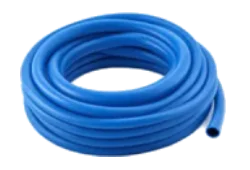
Polyurethane Rubber Pipes
Abrasion-resistant flexible tubing for pneumatic and material handling applications. Lightweight with superior mechanical strength.
- Applications: Pneumatics, material conveying, robotics
- Temperature Range: -40°C to +90°C
- Pressure Rating: Up to 250 PSI
- Key Features: Crystal clear options, abrasion resistance 3x better than rubber
- Benefits: Memory retention, low compression set
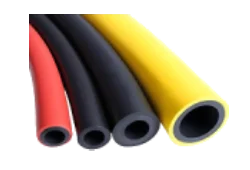
Santoprene Rubber Pipes
Thermoplastic elastomer (TPE) tubing combining rubber flexibility with thermoplastic processability. Excellent for medical and food applications.
- Applications: Medical devices, food contact, peristaltic pumps
- Temperature Range: -50°C to +135°C
- Pressure Rating: Up to 120 PSI
- Key Features: Autoclavable, chemical resistant, colorfast
- Certifications: USP Class VI, NSF 51, ISO 10993
Why Buy Rubber Pipes from Rubber Xperts Inc?
Our company and rubber pipes stand out for the following reasons:
- Technical Expertise and Application Support: Our engineering team brings decades of experience in fluid transfer systems across multiple industries. We don’t just sell hoses—we analyze your complete application (fluid type, temperature, pressure, environment, regulations) to recommend optimal solutions.
This consultative approach prevents costly mistakes like material incompatibility or undersized pressure ratings. - Extensive Inventory with Fast Fulfillment: We stock over 50 standard rubber pipe configurations in multiple sizes, maintaining inventory depth that enables same-day shipping for orders placed before 2 PM EST. For non-stock items, our manufacturing relationships provide expedited production. This inventory investment means you get products when needed, not when it’s convenient for the supplier.
- Custom Manufacturing Capabilities: 73% of our orders involve custom specifications because off-the-shelf products rarely match unique requirements perfectly. We manufacture custom lengths, compound formulations, and reinforcement configurations to exact specifications. Our 10,000 sq. ft. facility handles prototype development through high-volume production.
- Competitive Bulk Pricing: Volume purchasing power allows us to offer competitive pricing, especially for bulk orders. We provide transparent pricing with clearly outlined quantity discounts. No surprise charges or hidden fees. Our pricing structure rewards customer loyalty while remaining competitive with import alternatives—but with the advantage of domestic support and quality control.
- Certified Quality and Compliance: All products manufactured or supplied by Rubber Xperts Inc. meet rigorous ISO 9001 quality standards. We maintain FDA compliance documentation for food-grade materials and provide material certificates on request. This commitment to quality control ensures consistency across orders and industries.
- Reliable Logistics Network: Strategic Fort Worth location near I-35W provides efficient distribution to major markets nationwide. We partner with reputable carriers offering tracking, insurance, and expedited options. International shipping available with export documentation support.
- After-Sales Support: Our relationship doesn’t end at purchase. We provide troubleshooting assistance, installation guidance, and specification verification to ensure product success in your application. An accessible customer service team responds quickly to questions or concerns.
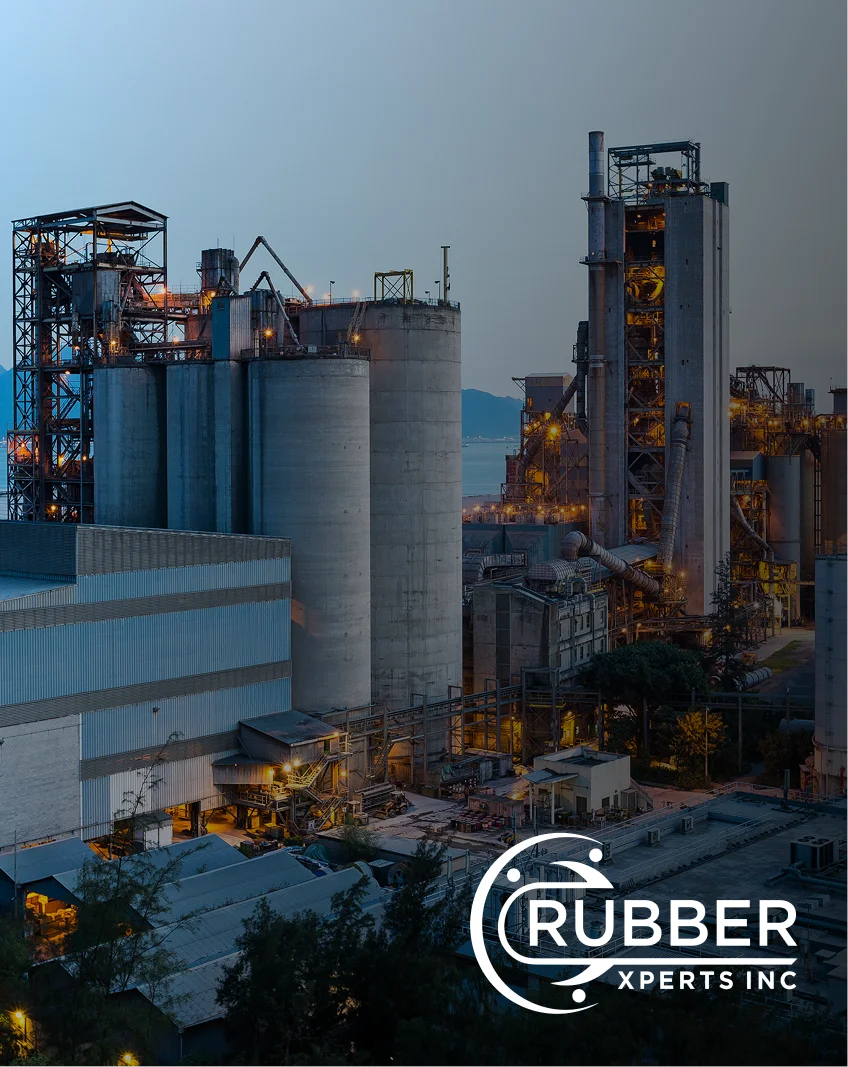
Your Custom Rubber Pipe Journey - From Consultation to Delivery
Consultation and Requirements Analysis
Our technical team reviews your application specifics, including fluid type, temperature range, pressure requirements, environment, and regulatory needs.
Material Selection and Engineering
Based on your requirements, we recommend appropriate materials and construction types. For custom applications, our engineers design the specifications, including compound formulation, reinforcement type, and end fitting configuration..
Prototype Development (Custom Orders)
For complex custom applications, we produce prototype samples for testing and validation before full production. This ensures the product meets specifications and performs correctly in your actual operating conditions.
Manufacturing and Quality Control
Once approved, production begins under strict quality protocols. Each batch undergoes material verification, dimensional inspection, and pressure testing as appropriate.
Final Inspection and Shipping
All orders receive final inspection before packaging to verify correct products, quantities, and specifications. Appropriate packaging protects products during transit.
What Are Rubber Pipes?
Rubber pipes are flexible conduits manufactured from elastomeric compounds, designed to transport fluids, gases, and granular materials safely across diverse industrial settings. Unlike rigid metal or plastic piping, rubber pipes accommodate movement, vibration, and thermal expansion while maintaining leak-free performance.
Their essential value lies in their unique combination of properties: they absorb shock and vibration (protecting connected equipment), flex without breaking (enabling complex routing), resist a broad spectrum of chemicals (ensuring compatibility), and maintain integrity across extreme temperature ranges (from cryogenic to high-heat applications).
Industries rely on rubber pipes because they reduce system stress, minimize maintenance downtime, and provide reliable service in conditions where rigid piping would fail. This makes them indispensable for mobile equipment, vibrating machinery, and applications requiring frequent disassembly.
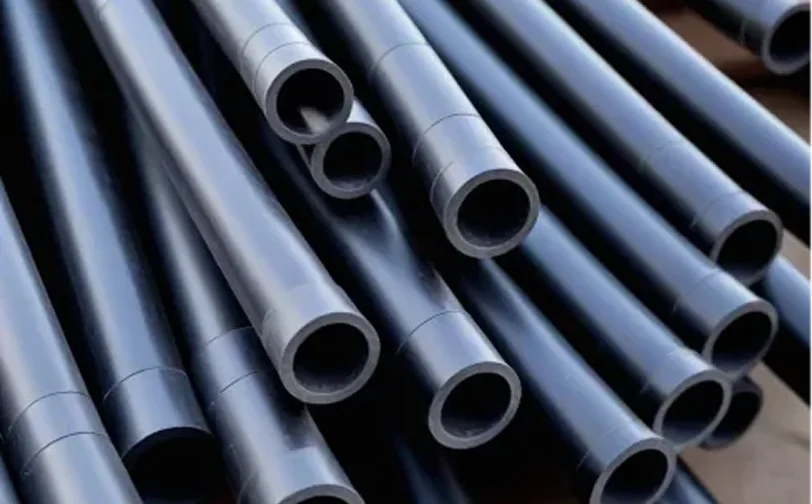
What are the Different Types of Rubber Pipes?
The different types of rubber pipes are highlighted below:
EPDM Rubber Pipes

EPDM (Ethylene Propylene Diene Monomer) pipes excel in outdoor environments where UV exposure, ozone, and weathering would degrade other materials. Their specialty lies in steam and hot water applications, maintaining flexibility even after prolonged exposure to temperatures up to 120°C. EPDM's polar structure makes it incompatible with petroleum products but ideal for water-based systems, alkaline solutions, and ketone-based fluids. The benefit is exceptional longevity in outdoor installations, lasting 20+ years without cracking or hardening.
Nitrile Rubber Pipes

Nitrile (NBR/Buna-N) pipes are engineered specifically for petroleum-based fluid resistance, making them the standard for automotive fuel lines and industrial oil transfer. These pipes withstand mineral oils, hydraulic fluids, and aliphatic hydrocarbons without swelling or degradation.
Their specialty is balancing oil resistance with cost-effectiveness, though they're not suitable for aromatic fuels with high aromatic content. The benefit lies in their abrasion resistance, outperforming natural rubber in wear-intensive applications while maintaining good flexibility.
Silicone Rubber Pipes
Silicone pipes provide the broadest temperature tolerance (-60°C to +200°C) of any rubber material, maintaining flexibility and strength at both extremes. Their specialty is high-purity applications where contamination risks must be eliminated, such as in food processing, pharmaceutical manufacturing, and medical devices.
Unlike other rubbers, silicone remains inert and won't leach flavors or chemicals. The benefit is their physiological inertness combined with sterilization compatibility, making them the only choice for many FDA-regulated applications despite their higher cost.
Natural Rubber Pipes

Natural rubber pipes offer superior physical properties—high tensile strength, tear resistance, and abrasion durability—at the lowest cost point. These pipes are custom-made for applications prioritizing mechanical properties over chemical resistance.
Their specialty lies in water transfer, air lines, and applications where elasticity and energy absorption are critical. The benefit is outstanding flexibility and resilience, though they're not recommended for outdoor use (poor UV resistance) or contact with oils, solvents, or oxidizing chemicals.
Reinforced Rubber Hoses

Reinforced rubber hoses incorporate textile braids, wire spirals, or aramid fiber layers to prevent collapse under vacuum and bursting under pressure. These custom-engineered solutions are designed for demanding hydraulic and pneumatic systems.
Their specialty is handling high-pressure applications (up to 6,000 PSI for wire-braided types) while maintaining flexibility. The benefit lies in their safety factor and 4:1 burst-to-working pressure ratios, which provide reliable service in heavy-duty industrial machinery, mobile equipment, and hydraulic power units.
Food-Grade Rubber Pipes

Food-grade pipes are formulated with FDA-compliant compounds and manufactured under stringent quality controls to prevent contamination. These pipes feature smooth, non-porous inner surfaces that resist bacterial growth and facilitate CIP (clean-in-place) procedures.
Their specialty is meeting regulatory requirements while maintaining the flexibility and durability needed for production environments. The benefit is eliminating contamination risks in food and beverage processing, which is critical for maintaining product safety and regulatory compliance in dairy, brewing, and food manufacturing operations.
High-Pressure Rubber Pipes

High-pressure pipes utilize multi-layer construction with steel wire reinforcement to safely contain pressures exceeding 3,000 PSI. These engineered hoses are designed for hydraulic power transmission, where failure could cause serious injury or equipment damage.
Their specialty is balancing pressure containment with flexibility in mobile hydraulic systems. The benefit is safe, reliable operation in demanding applications—excavators, industrial presses, and pressure washing equipment—where rigid piping would be impractical or dangerous.
What Materials Are Used in Rubber Pipe Manufacturing?
The common materials we use to manufacture our rubber pipes are highlighted below:
- EPDM: Highly resistant to weathering, UV rays, ozone, and heat, making it ideal for outdoor applications, hot water systems, and steam handling. It also maintains flexibility in varying temperatures.
- Nitrile (Buna-N): Offers strong resistance to petroleum-based fluids, oils, and fuels, making it suitable for automotive, industrial, and fuel transfer systems. It also has good abrasion resistance.
- Silicone: Remains flexible across extreme temperatures (-60°C to +200°C) and resists aging, ozone, and many chemicals. They are commonly used in food-grade, medical, and high-temperature applications.
- Natural Rubber: Known for excellent abrasion resistance, elasticity, and cost-effectiveness. Ideal for wear-intensive uses like mining, industrial hoses, and vibration damping.
Rubber Pipe Material Comparison Table
| Material | Temp Range | Pressure Rating | Chemical Resistance | Flexibility | Cost |
|---|---|---|---|---|---|
| EPDM | 40°C to +120°C | Medium | Excellent | High | Medium |
| Nitrile | -30°C to +100°C | High | Excellent (oils/fuels) | Medium | Medium |
| Silicone | -60°C to +200°C | Medium | Good | Very High | High |
| Natural Rubber | -20°C to +80°C | Low | Fair | High | Low |
How to Choose the Right Rubber Pipe for Your Needs?
To choose the right rubber pipe for your needs, evaluate your application against four critical parameters: fluid compatibility, operating conditions,
physical requirements, and regulatory compliance.
The following decision framework helps you select the appropriate rubber pipe:
Identify Your Fluid/Media
Begin by determining what substance will flow through the pipe—water, air, petroleum products, chemicals, or food products. The fluid's chemical composition directly dictates compatible materials.
Petroleum-based fluids require nitrile; aggressive chemicals need fluoroelastomer; food products mandate FDA-compliant silicone or EPDM.
Incompatible materials will swell, harden, or degrade rapidly, causing premature failure. Create a list of all substances the pipe will contact, including cleaning agents.
Assess Operating Conditions
Document your system's temperature range (minimum and maximum), pressure requirements (working and peak), and whether the application is static or dynamic (involving movement or vibration).
Temperature extremes eliminate certain materials—natural rubber fails below -20°C, while only silicone maintains flexibility at -60°C.
High-pressure applications require reinforced construction. Dynamic applications benefit from materials with superior flex fatigue resistance. Outdoor installations need UV-resistant EPDM or neoprene.
Determine Physical Requirements
Consider installation constraints such as bend radius, length requirements, and connection methods. Tight routing spaces require highly flexible materials like silicone.
Long runs may need reinforcement to prevent collapse. Evaluate whether the pipe needs to be transparent (for visual monitoring), conductive (to prevent static buildup), or have specific durability requirements like abrasion resistance for material handling applications.
Verify Regulatory Compliance
For regulated industries, ensure materials meet required certifications. Food and beverage applications must comply with FDA 21 CFR 177.2600, EU 1935/2004, or 3A Sanitary standards. Medical applications require USP Class VI or ISO 10993 biocompatibility.
Drinking water systems need NSF 61 approval. Automotive fuel lines must meet SAE J30 specifications. Industrial applications may require specific fire resistance ratings or antistatic properties.
Expert Consultation
Consulting with experienced engineers eliminates guesswork and prevents costly mistakes. Our technical team analyzes your complete application—fluid type, temperature, pressure, environment, and regulatory requirements—to recommend optimal materials and constructions.
We can identify potential issues like permeation, chemical degradation, or incompatible fittings before they cause problems.
Where Are Rubber Pipes Commonly Used?
Our rubber pipes are commonly used in the following industries:
Plumbing Systems
Used for water supply, drainage, and hot water circulation. Flexible design allows easy installation, and corrosion resistance ensures durability.
Industrial Machinery
Serve as coolant lines, chemical transport, and hydraulic connections. Resist chemicals, temperature changes, and mechanical stress.
Automotive Fuel/Oil Lines
Essential for fuel delivery and lubrication. Nitrile rubber resists oils and abrasion, handling engine heat and vibration reliably.
Food & Beverage Processing
Food-grade silicone or EPDM pipes safely transport liquids and gases, meeting sanitary standards and allowing easy cleaning.
Agricultural Irrigation
Deliver water and fertilizers flexibly and reliably, withstanding UV exposure and pressure fluctuations in outdoor settings.
Chemical Handling
Specialized rubber hoses transport solvents, acids, and alkalis safely, with material choice critical to prevent leaks and degradation.
Key Features and Benefits of Rubber Pipes
Our rubber pipes are known for the following features and benefits:
Flexibility
Rubber pipes easily bend around corners and obstacles without cracking or kinking, making installation simpler in tight or complex spaces. This flexibility helps reduce the need for additional fittings, lowering overall system costs.
Leak Prevention
When paired with the correct fittings and clamps, rubber pipes create a tight, reliable seal that minimizes the risk of leaks. This ensures efficient fluid transfer and reduces downtime caused by repairs.
Abrasion Resistance
The durable rubber surface resists wear from friction, handling, and environmental factors, extending the pipe’s lifespan. This makes rubber pipes ideal for applications involving movement or abrasive materials.
UV and Chemical Resistance
Rubber pipes, especially those made from EPDM or specialized compounds, resist damage from UV rays and a wide range of chemicals. This allows them to perform reliably in harsh outdoor and industrial environments.
Temperature Tolerance
These pipes maintain their integrity and flexibility in extreme temperatures, functioning well in both hot and cold climates. This versatility makes them suitable for diverse applications from hot water systems to refrigerated processes.
Easy Installation
Rubber pipes can be quickly cut to length and are compatible with numerous fittings and clamps, simplifying the installation process. This adaptability helps reduce labor time and costs.
How to Install Rubber
Pipes
To install our rubber pipes, follow the steps listed
below:
Measure
Remove all dust, grease, oils, and debris from the mating surfaces using a clean cloth and suitable solvent. A clean surface ensures maximum adhesion and performance.
Cut
Use a sharp hose cutter or utility knife to make clean, straight cuts on the pipe ends. Clean cuts prevent fraying and help form a tight seal with connectors.
Secure
Attach the pipe ends to the fittings using appropriate clamps, couplings, or connectors. Ensure clamps are tightened firmly but not overly tightly to avoid damaging the pipe.
Test
Once installed, pressurize the system gradually and inspect all connections for leaks. Early leak detection helps avoid costly repairs and system downtime.
Frequently Asked Questions
Here are some frequently asked questions about Rubber Pipes to help you find the answers you need:
EPDM and Viton are the top choices for resisting acids, alkalis, and many industrial chemicals. These materials provide long-lasting durability in harsh chemical environments.
Use EPDM pipes for hot water applications due to their excellent heat and water resistance. Nitrile rubber is best for oil and fuel lines, while Silicone is suitable for high temperatures and food-grade requirements.
Yes, reinforced rubber hoses with braided or spiral layers are designed to withstand high-pressure conditions. These reinforcements provide added strength and prevent pipe bursting.
Yes, EPDM and specially formulated UV-stabilized compounds perform well in long-term outdoor exposure. They resist degradation caused by sunlight and ozone.
It’s recommended to inspect rubber pipes quarterly for signs of wear, cracks, or leaks, according to the SCRIBD report ‘ISS-059 Inspection Guidelines HP Hoses’. Replacement occurs every 2 to 5 years, depending on the application and environmental factors.
Yes, we can manufacture certified custom rubber pipes tailored to meet various industry regulations. This ensures compliance and safety for your specific needs.
The common causes include abrasion, exposure to incompatible chemicals, and improper installation. Selecting the correct material and proper storage can significantly extend pipe life.
Store rubber pipes in a cool, dry area away from direct sunlight, ozone sources, and extreme temperatures. Proper storage prevents premature aging and material degradation.
Yes, bulk and OEM orders are available to support large-scale manufacturing. Contact our sales team for pricing and branding options.
Generally, reusing rubber pipes is not recommended, especially in high-pressure or sanitary applications. Reuse can compromise seal integrity and safety.
Measure the inner diameter (ID), outer diameter (OD), and the required length using precise measuring tools. Accurate sizing ensures compatibility with fittings and prevents leaks.
Yes, Silicone and EPDM pipes are heat-resistant, with Silicone tolerating up to 200°C and EPDM up to 120°C. These materials maintain flexibility and performance under heat stress.
Yes, custom-cut-to-length pipes and pre-assembled kits are available to meet your project needs. Contact us to get a quote tailored to your specifications.
Customer Reviews and Testimonials

Ryne Pfeifer
"We recently purchased rubber gaskets from Rubber Xperts INC. and were thoroughly impressed with their service. The team demonstrated a high level of professionalism and ensured we received top-quality products. Their assistance throughout the process was invaluable, and they delivered everything on time. We highly recommend Rubber Xperts INC. for their exceptional quality and outstanding customer support."
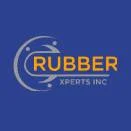
Remya Varughese
"Our dairy organization has been partnering with Rubber Xperts INC. for a while now, and we frequently procure silicone dairy hoses from them. Their customer service and engineering team are outstanding, always ensuring we receive the best products and support. This partnership has been a great success, and we highly recommend Rubber Xperts INC. for their professionalism, quality, and reliability."
With years of experience in hydraulic and pneumatic systems, Rubber Xperts INC makes top-quality rubber products like rubber o-rings, rubber seals, rubber pipes, rubber extrusions, rubber gaskets, rubber mounts, rubber hoses, and more.
We cater to various industries such as construction, aviation, agriculture, and marine. Quality is our priority, ensuring you get the best possible experience and product.
Our team can locate any product for you such as Seals, O-Rings, Gaskets, Pipes, Hoses, and more. If you need help finding a very specific product, reach out to us by phone, email, or contact form. If it exists, we'll find it for you.
We're available Monday-Friday
from 8:00 AM to 6:00 PM EST,
and Saturday from 8:00 AM to 12:00 PM EST.
Top-notch customer support from us,
whether it's before or after your purchase.
Buy easily through our website or
just give us a call.
Customize your ordering and packing preferences with our flexible solutions tailored to your needs.
